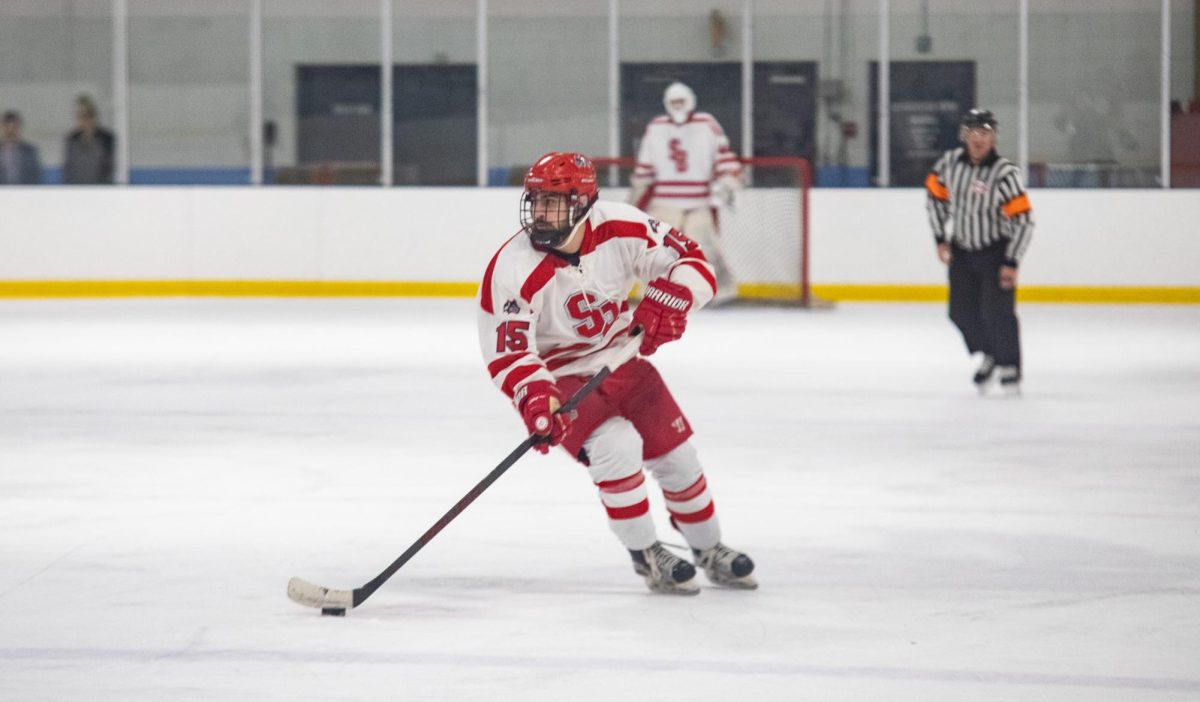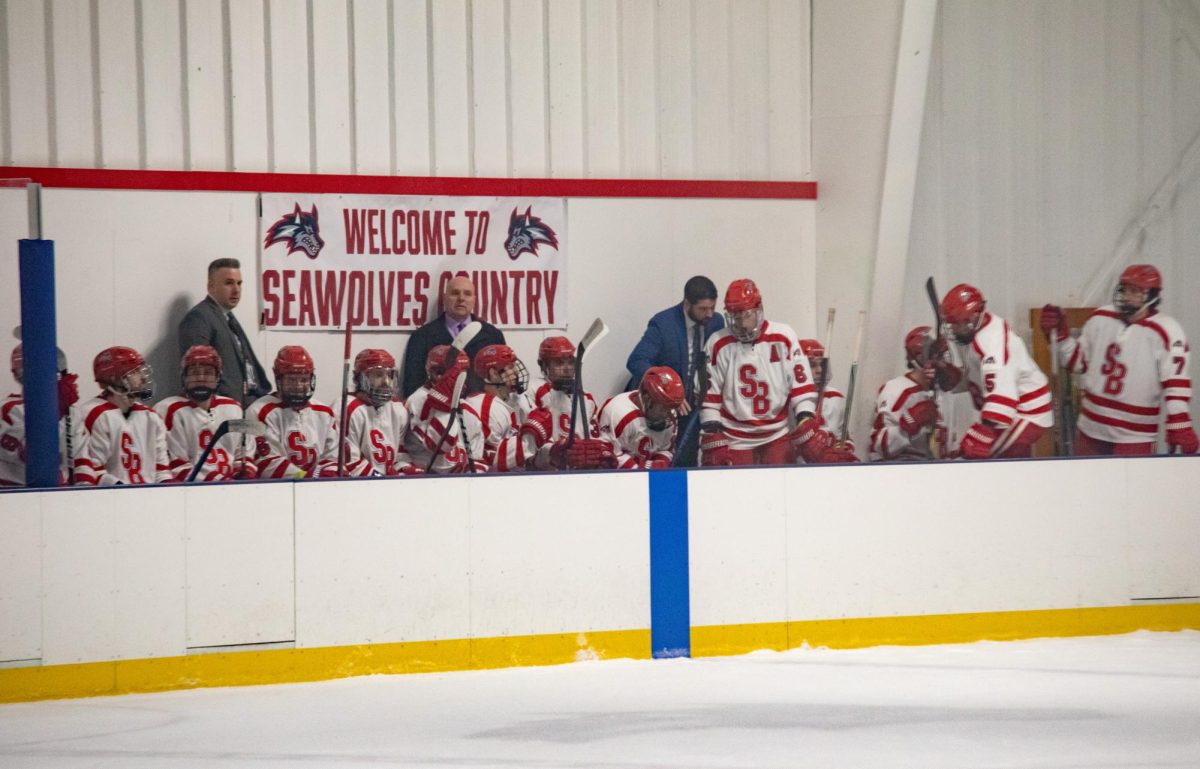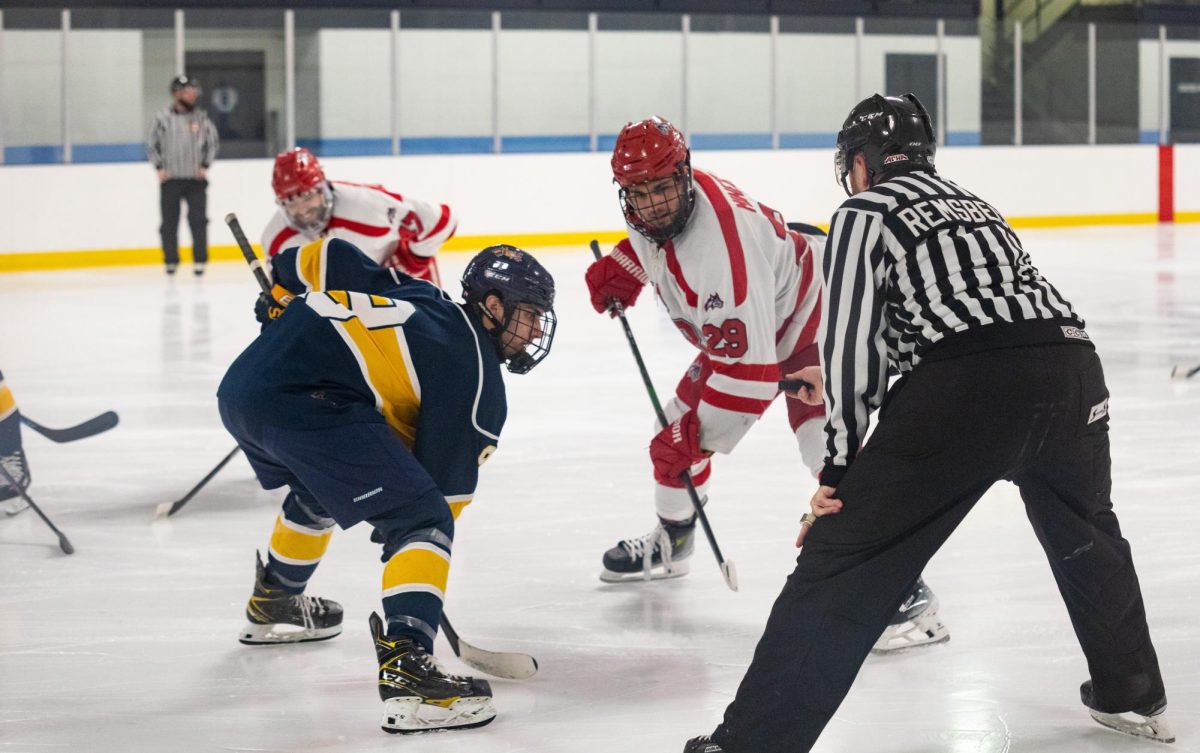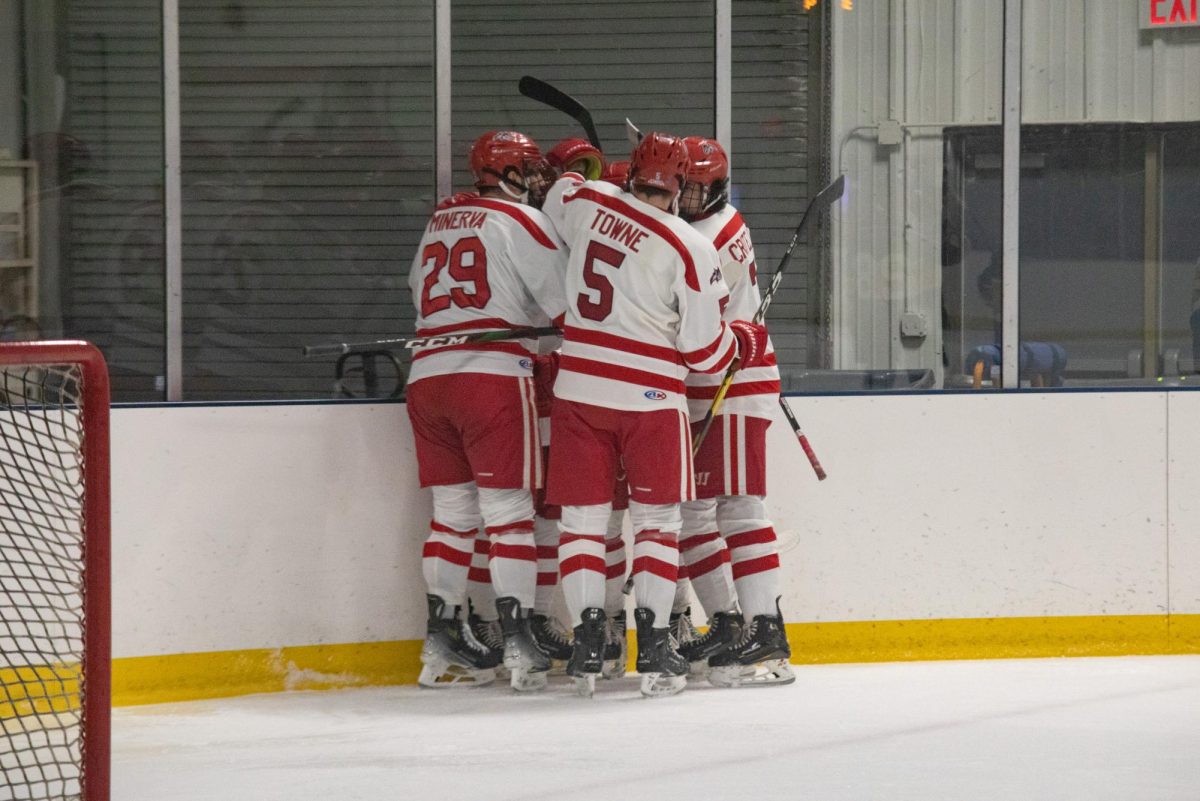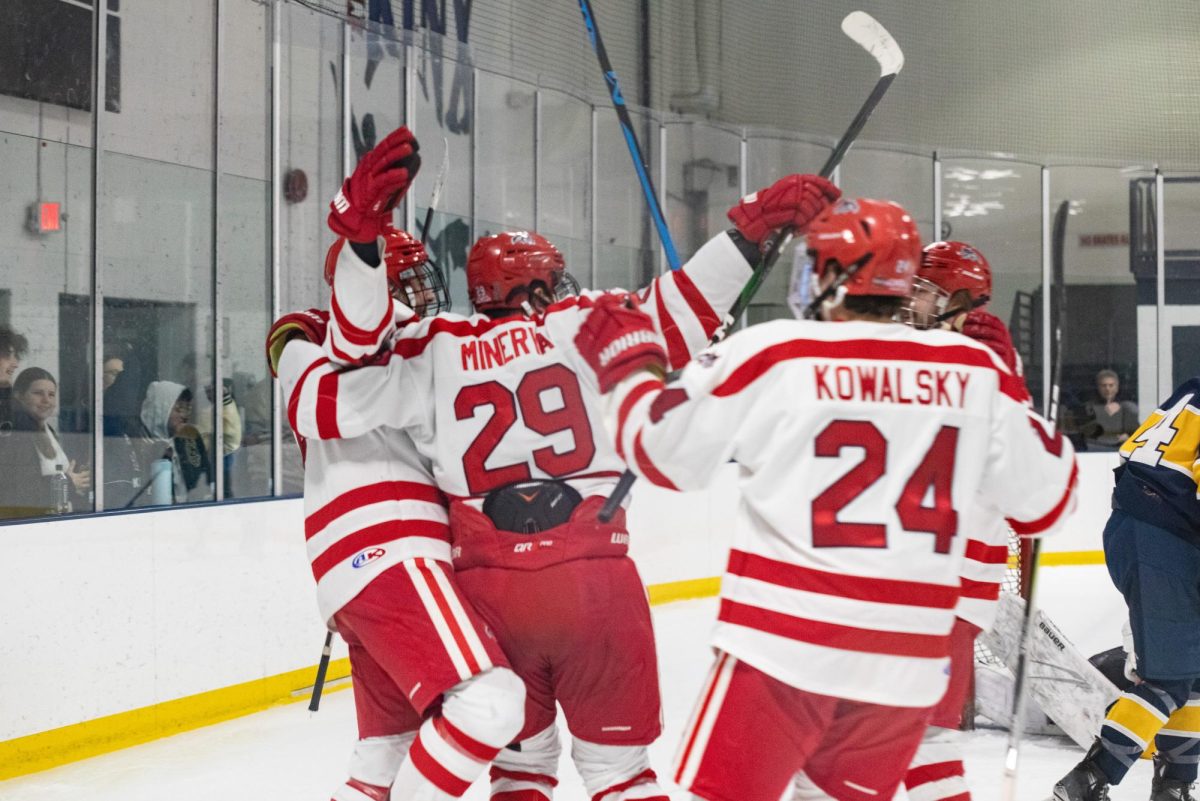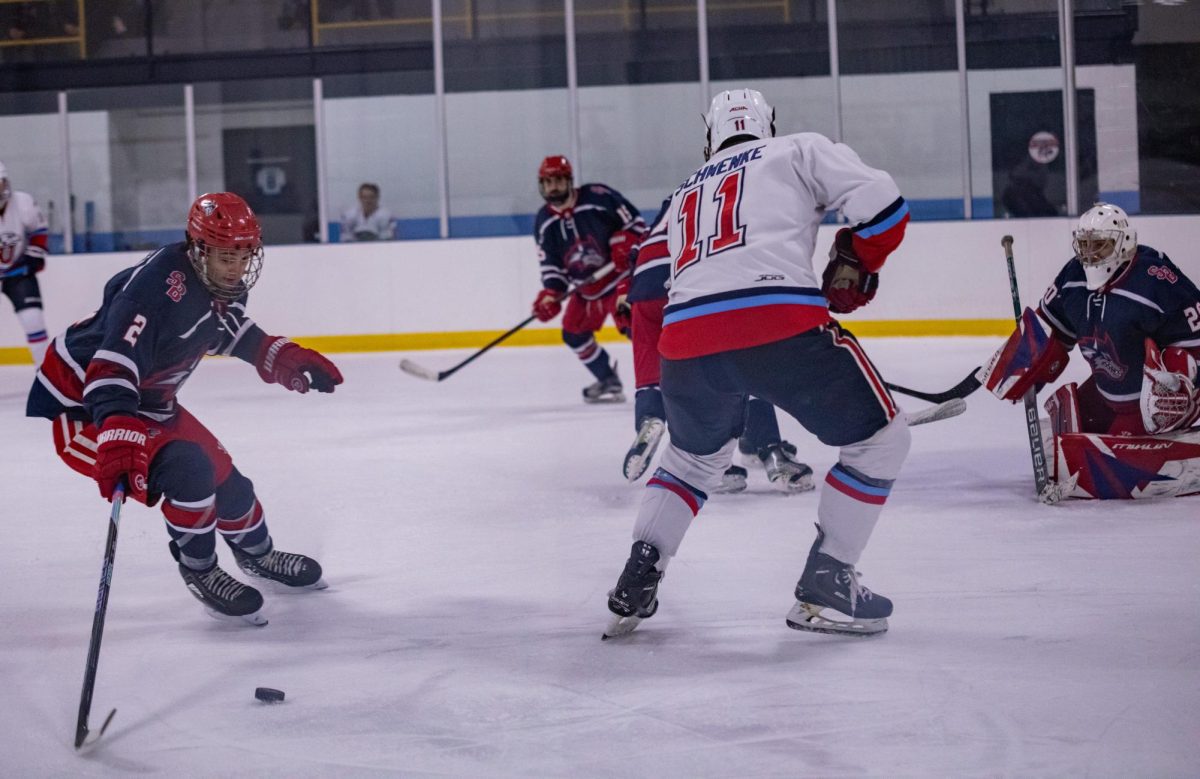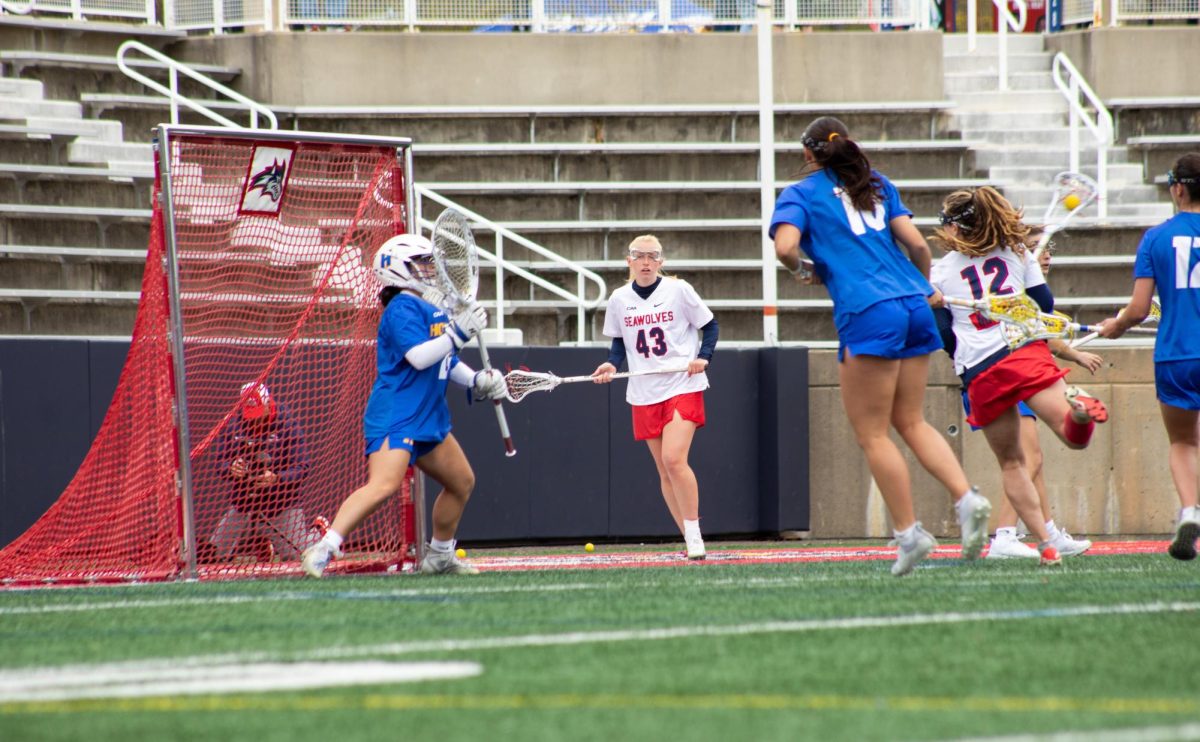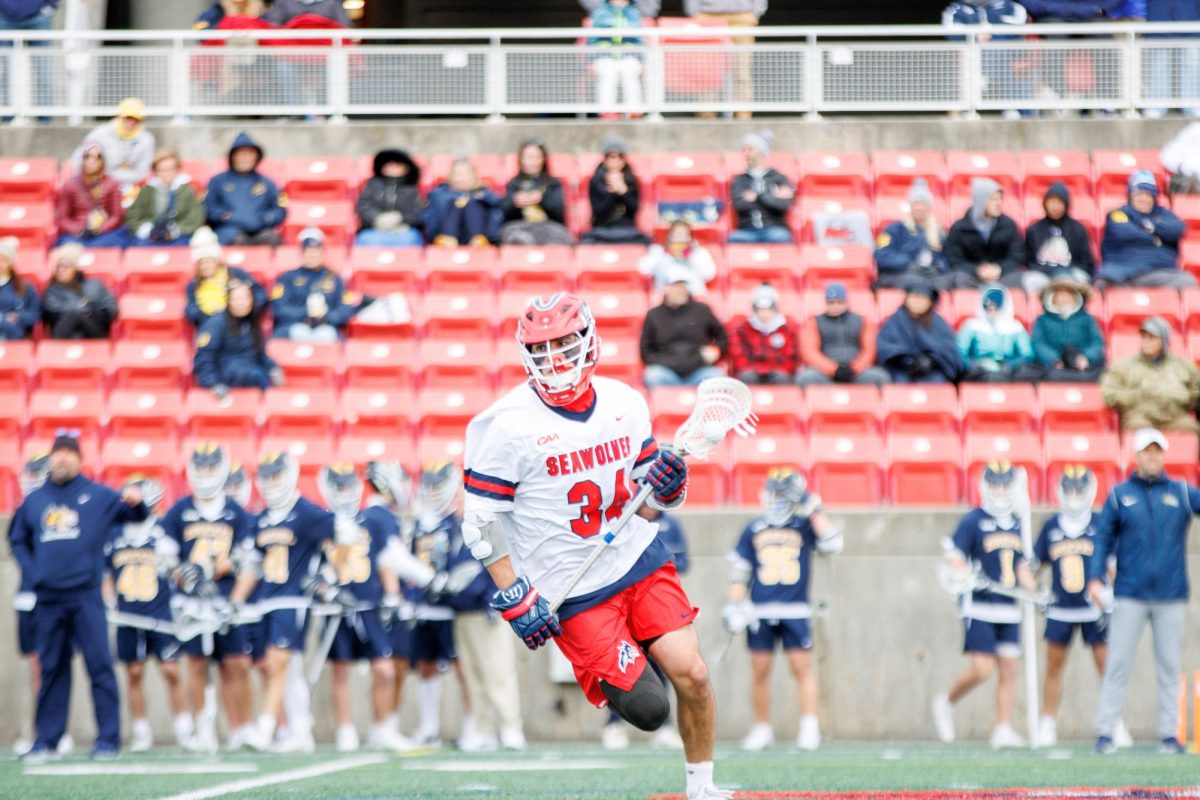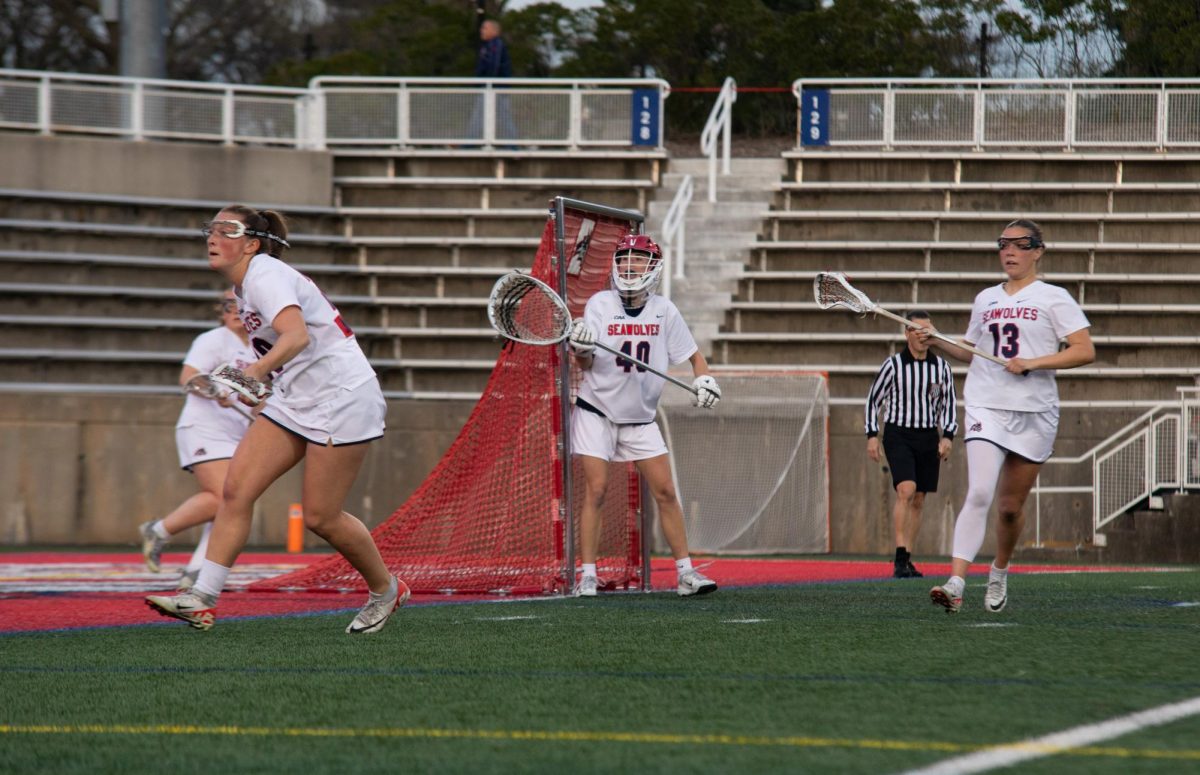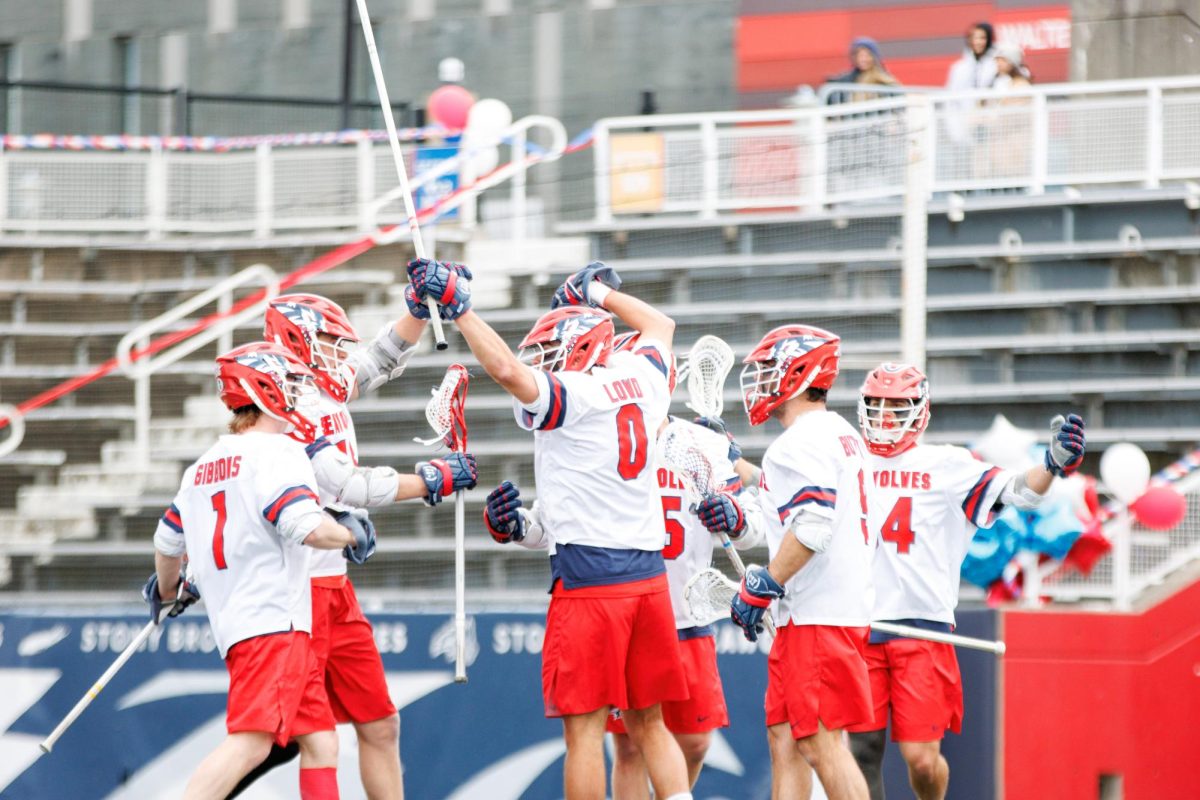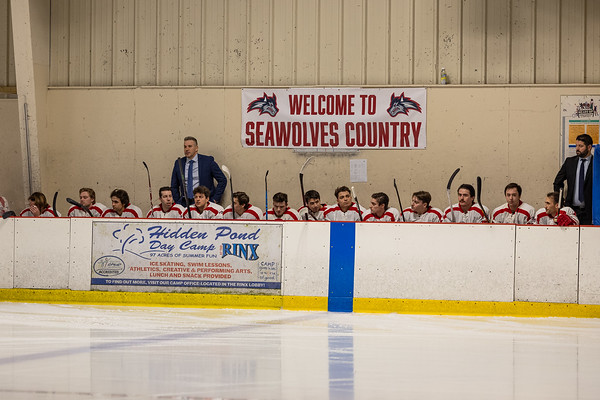
The American Collegiate Hockey Association (ACHA) is not exactly like the NCAA. Sure, there are similarities between the two national organizations, but they are notably different in many ways. The technicalities of the ACHA can be tough to follow, so here is everything you need to know about the rest of the 2022-23 season, and how all of it relates to the Stony Brook club hockey team.
How the ACHA National Tournament is constructed
The ACHA National Tournament is composed of 20 teams, and it is based on a combination of automatic bids and the national rankings. There are nine conferences (also called leagues) in the ACHA, all of which get to send at least one automatic bid to nationals per year. The other 11 teams who make the tournament clinch their spots based on their place in the national rankings.
How the ACHA rankings work
The top 25 teams in the ACHA are considered ranked. However, the ACHA’s national rankings are computerized and function more similarly to the Ratings Power Index (RPI) system in the NCAA, rather than an actual voters’ poll. The computer polls take several things into consideration when ranking a team, such as record, margin of victory/defeat, strength of schedule and opponents’ strength of schedule. Stony Brook currently finds itself ranked No. 18 in the ACHA rankings.
Another way the ACHA differs from the NCAA is that there are no teams “receiving votes” outside the top 25; the list just keeps on going. For example, Stony Brook’s most recent opponent — Drexel — entered this week as the No. 35 team in the country.
Another thing to note: the computerized polls do not dignify games that go past regulation. Winning a game in overtime or a shootout does not earn a team a win in the computerized ranking calculations. The game merely gets marked down as a tie. For example, beating Delaware 4-3 in overtime earned the Seawolves a win and two points in the conference standings, but a tie in the national poll calculations. Therefore, that did not help them at all in the ACHA national rankings.
If Stony Brook is to improve upon its ranking at 18, it is going to have to win most (if not all) of those remaining games in regulation. Winning by multiple goals will help the Seawolves even more. Losses will drop them, and overtime wins and losses (in this case, ties) will not help either in regards to their spot in the national polls.
How to make clinch a spot in the national tournament
As mentioned earlier, there are 20 spots in the ACHA National Tournament. Just like the NCAA, it takes place after the regular season and the conference postseason tournaments have
concluded. Typically, nine teams earn an automatic bid (one from each conference), while the other 11 make it based on how highly ranked they are. It is not simply the 20 highest-ranked teams in the ACHA that go to nationals.
Automatic bids trump national rankings. A team may be guaranteed a spot in the tournament over a team that is ranked higher than it as long as it secured an automatic bid. If a team is ranked in the lower portion of the top 20 and did not earn an automatic bid, then it will lose its spot in the tournament in favor of the team with the bid.
For example, if the 20th ranked team does not own an automatic bid and the 30th one does, then the lesser of the two teams will make the tournament due to its bid.
Unlike the NCAA, the ACHA allows its nine conferences to choose the method for its automatic bid. The conferences have the option of sending either its regular-season champion (first-place team) or its postseason tournament champion. There are also independent teams who do not play in a conference, like No. 1 Minot State or No. 5 Liberty. Typically, in order for those teams to make nationals, they would have to be one of the 11 top-ranked teams to not earn an automatic bid.
It should be noted that this year’s tournament will have eight automatic bids instead of nine, as the Central States Collegiate Hockey League (CSCHL) does not own one this season. The 2023 ACHA National Tournament will consist of eight automatic bids and the 12 highest-ranked teams to not earn one.
Stony Brook’s dilemma
Stony Brook is a member of the Eastern States Collegiate Hockey League (ESCHL). This year, the ESCHL is choosing to send its regular-season champion. The Seawolves are currently in third place in the ESCHL No. 13 Niagara and No. 11 Pittsburgh. Their final six games are against No. 24 Rhode Island, Niagara and Pittsburgh. All six games will have an impact on their national ranking, and the final five are all league games.
Stony Brook is six points (which equates to three wins) behind Pittsburgh, who has 19 points in the ESCHL. The Seawolves can make the tournament via automatic bid by winning four of their final five games and sweeping Pittsburgh. If Stony Brook wins four games and Pittsburgh wins none, then it finishes in first place. If the Panthers win one conference game during that stretch but the Seawolves still sweep them, then the latter will earn the automatic bid due to the head-to-head tiebreaker.
It will obviously be hard for them to usurp the Panthers and earn an automatic bid, forcing them to rely on their national ranking.
However, as of now, their ranking is not high enough. Three of the automatic bids will be given to teams who are currently ranked below the top 20. College Hockey Mid-America conference (CHMA), the Northeast College Hockey League (NECHL) and the Eastern Collegiate Hockey Association (ECHA) all have zero teams in the top 20. No matter how those conferences are choosing their automatic bids, the three teams will make it over teams ranked at the bottom of the top 20.
Why is that Stony Brook’s problem? Well, the three inferior teams with automatic bids will replace the bottom three teams in the national top 20. Ranked 18th, the Seawolves would be one of those teams dropped from the tournament in favor of an automatic bid.
How to solve this problem
Mathematically, Stony Brook could still win the ESCHL and earn an automatic bid by winning out. However, if Pittsburgh wins two more league games (one would be against Stony Brook), then that door officially closes.
In that case, Stony Brook could avoid being dropped from the ACHA National Tournament by improving its ranking. As mentioned earlier, playing well and winning big over this final four-game stretch would raise the Seawolves in the polls. If they can get back up to 17, they will no longer be in danger of being replaced by an inferior team with an automatic bid.
Other potential nightmare scenarios to look out for
There are four conferences in the ACHA that are handing their automatic bid to the playoff champion rather than the regular season champion. Some of those conferences include the Wolverine-Hoosier Athletic Conference (WHAC), the Great Lakes Collegiate Hockey League (GLCHL) and Midwest College Hockey (MCH).
Those three conferences all have multiple teams who outrank Stony Brook in the top 20. However, if one of those conferences’ teams from below the top 20 wins its playoff tournament, that would take away even more room from Stony Brook.
For example: if No. 36 McKendree of the MCH wins the MCH Postseason Tournament, then McKendree earns the conference’s automatic bid. However, the MCH still boasts No. 8 Jamestown and No. 12 Illinois State — two very highly-ranked teams. In that case, all three teams would make the tournament, which would add a fourth team below the top 20 into nationals. To clear space for the automatic bid, a fourth team would get dropped from the tournament, which would be the No. 17 team.
In a very extreme scenario, all three of the aforementioned conferences could be won by teams ranked beneath the top 20. To keep the top-ranked teams and clear space for the automatic bids, the No. 16 and 15 teams would get dropped, too.
Even if Stony Brook does ascend, it still may not be enough. The best thing the Seawolves can do for themselves is just win.
Correction, 02/14/23, 3:29 p.m.: A previous version of this article mistakenly stated that non-conference games do not count towards ACHA National Rankings. That is not true.







